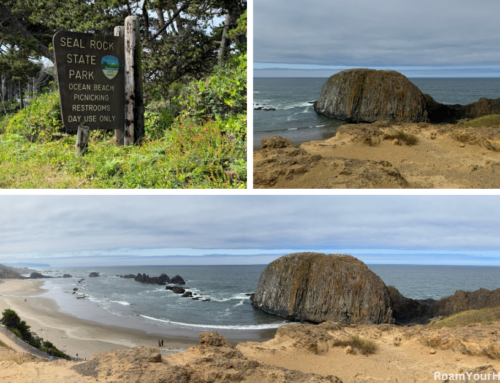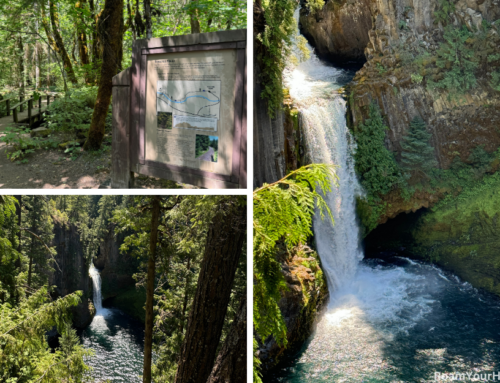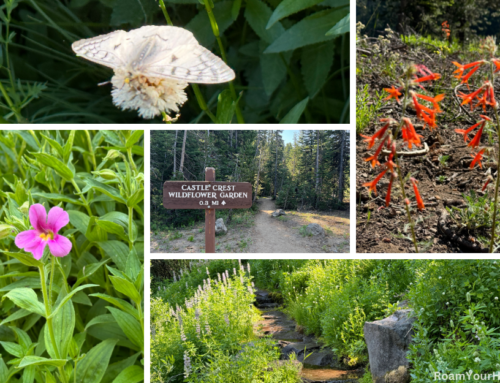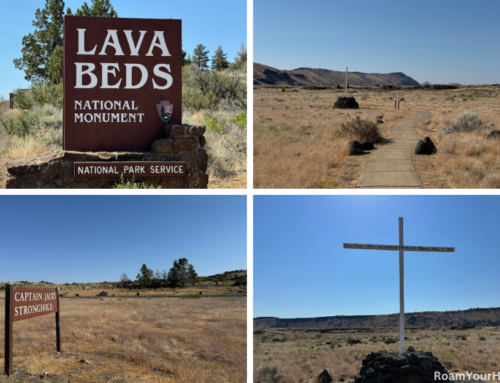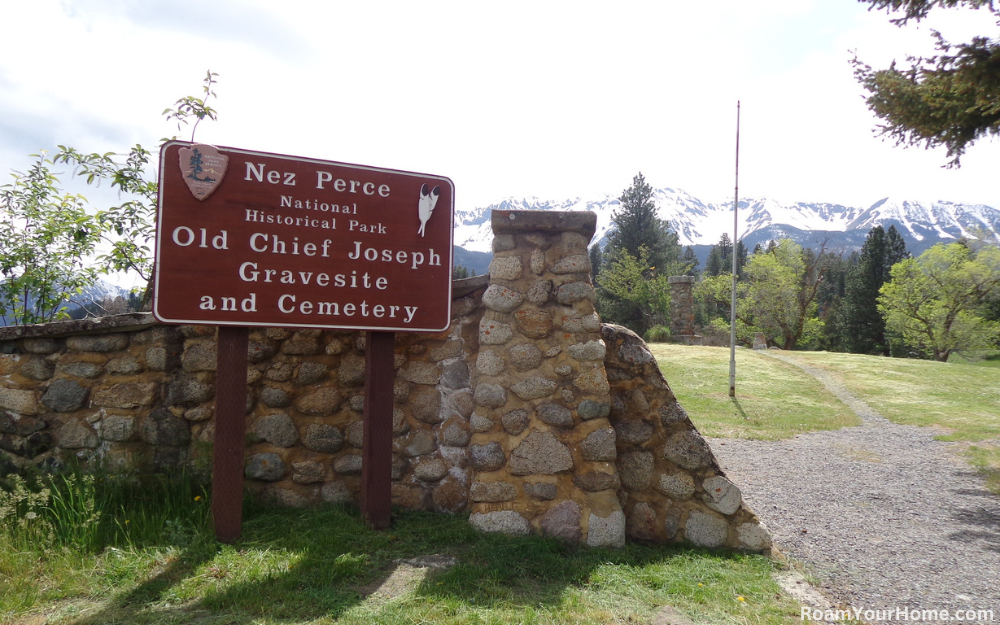
Visit Old Chief Joseph Burial Site at Nez Perce National Historical Park
In the shadow of the rugged Wallowa Mountains in remote northeastern Oregon lies an easy-to-visit but often overlooked piece of our nation’s history. Tiwi-teqis, meaning “senior warrior” or more commonly known as Old Chief Joseph, is buried right off of Oregon Highway 82 just south of Joesph near the banks of Wallowa Lake. The burial site is a part of the Nez Perce National Historical Park.
Born around 1785 in the nimíipuu or Nez Perce homeland of northwestern Oregon, he lived well into his 80s before passing in 1871. During his life, the United States would evolve from a nation in its infancy to one that touched two oceans. Old Joseph was one of the very first Nez Perce converts to Christianity. Baptized Joseph in 1939, he would carry the name with him for the rest of his life, despite later renouncing Christianity.
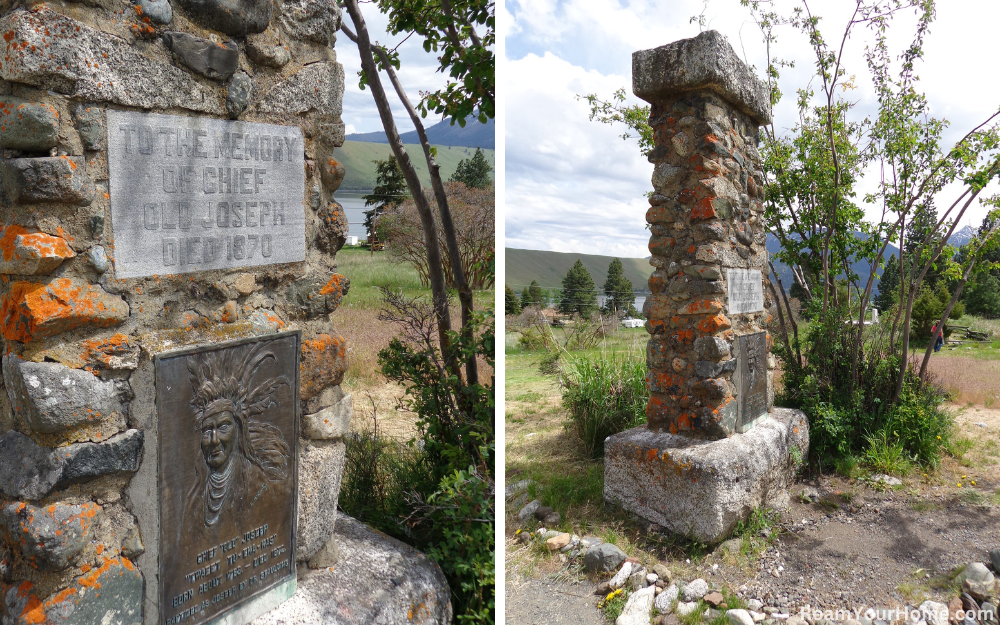
Old Joseph was also a staunch advocate of the Nez Perce’s early peace with the United States government. He was instrumental in setting up the 1855 treaty negotiations that established the Nez Perce reservation from Oregon into Idaho. Initially, the tribe agreed to give up a section of their ancestral lands in return for an assurance the government would leave their sacred Wallowa Valley alone. That promise was short-lived. Within a decade, the discovery of gold in the area would cause the government to break its promise and seize approximately 6 million acres from the Nez Perce, including the Wallowa Valley. The 1863 treaty would establish a new reservation that was one-tenth its original size.
Old Joesph refused to sign the “steal treaty” and refused to move his people out of the Wallowa country. Spurned by the government’s deception, Old Joseph destroyed his American flag and burned his bible.
In the summer of 1871, the Nez Perce made the summer camp at the forks of the Wallowa and Lostine rivers. Not long after this, Old Joseph, who was the father of Chief Joseph, the leader of the Nez Perce War in 1877, summoned his son. The younger Joseph would later say.
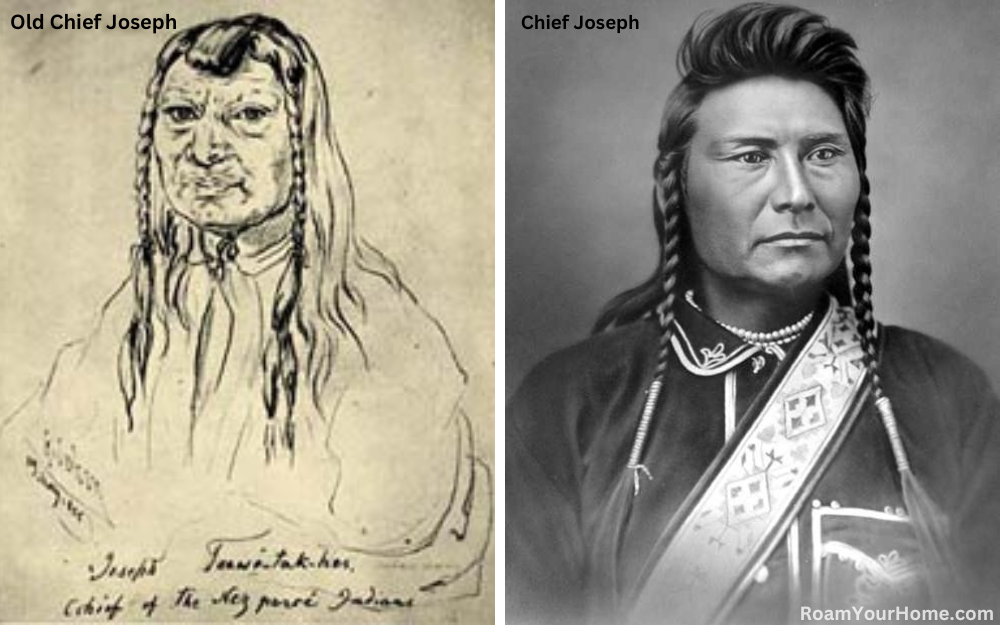
Old Chief Joseph’s Dying Wish
“My father sent for me. I saw he was dying. I took his hand in mine. He said, ‘My son, my body is returning to my mother earth, and my spirit is going very soon to see the Great Spirit Chief. When I am gone, think of your country. You are the chief of these people. They look to you to guide them. Always remember that your father never sold his country. It would be best to stop your ears whenever you were asked to sign a treaty selling your home. A few years more, and white men will be all around you. They have their eyes on this land. My son, never forget my dying words. This country holds your father’s body. Never sell the bones of your father and your mother.’ I pressed my father’s hand and told him I would protect his grave with my life. My father smiled and passed away to the spirit land. I buried him in that beautiful valley of Winding Waters. I love that land more than the rest of the world. A man who would not love his father’s grave is worse than a wild animal.”
Sadly, with forced eviction looming by the U.S. Army, Young Chief Joseph and the Nez Perce forever left the Wallowas in the spring of 1877.
Old Joseph was initially buried at the confluence of the Wallowa and Lostine Rivers. After his grave was desecrated and robbed twice, it was moved to its current location in 1926. That year, 2,500 people lined up to pay their respects to tıwi·teq̉ıs, or Old Chief Joseph, as he was interred at the base of Lake Wallowa, overlooking the lands he once called home.
Today, you too, can pay your respects to Old Chief Joseph with a visit to this sacred site.


